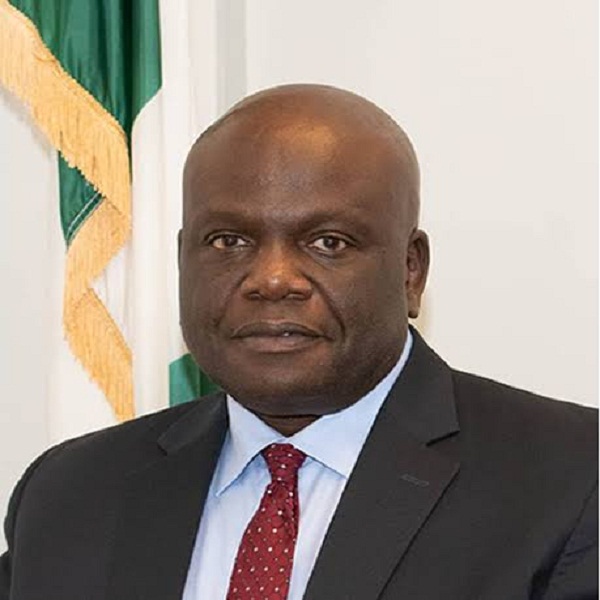Captain Musa Nuhu is the Director General of the Nigerian Civil Aviation Authority (NCAA) and he speaks on the challenges in the industry and how the issues can be resolved. He explains why domestic airlines are having problems flying foreign routes and how best they can make profit.
How has COVID19 affected your plan for the industry?
First of all, we have to survive, ensure the organisation survives, and put measures for the industry to survive. COVID19 certainly delayed our plans but now with the successful resumption of domestic flights and we have not had a significant spike and contamination cases,
Perhaps one or two minor hitches there, nothing significant, and I know you will all agree with me so far so good and the response from the public complying with the protocols have been excellent. We started the international flight operations, with time we are going to increase the number of flights coming in as things stabilize. We identified hitches that were rectified and we hope things will get much better going forward. So part of the plans we had is repositioning the regulatory body that is flexible to react to changing situations and part of the restructuring we have had is part of this process and in the coming months, we will see the organisation in a good position to deal with challenges. COVID-19 has changed the global industry, the rapid changes in technology are also changing the industry, not only aviation but also the ways businesses are conducted. So we have to reposition ourselves to fit into that so that we can really effectively conduct our regulatory responsibilities.
What is your assessment of the economic health of domestic airlines?
The airlines, not only in Nigeria, it is a global thing. In the airline industry, the profit margin is very minimal. If you make five per cent profit margin in the business, you are considered to have done excellently well. But, however, with the COVID-19 and the difficulties, airlines’ financial positions are not the best. It is a global phenomenon and there are so many other issues that affects the financial health of airlines that is neither in the control of the Ministry of Aviation nor in the control of the civil aviation regulatory body. For instance, the provision of foreign exchange, it doesn’t come from us. If a country’s foreign earning goes down, the central bank prioritises, and you can understand. Due to the lack of maintenance organisations in Nigeria, pilot recurrent training institutions in Nigeria, they have to go outside to do these and that entails a lot of foreign currencies. So it is not easy. Also is Jet A1, that is a major factor that airlines have been having difficulties with, sometime we see it induced scarcity and escalating price. So there are factors that affect the health of the airlines that are not in our direct control.
The ministry has tried. It went to the central bank when this government came on board. Nigeria owed foreign airlines about $600 million in arrears.
The minister, through consultations, was able to get that off our back and all the foreign airlines were paid. We visited the NNPC to see what kind of arrangement that could be made for the production of Jet A1 and in addition, interest rate. When airlines go and borrow at a very high interest rate, which we know is very high in Nigeria, if my profit margin is five percent, explain to me if I takes a loan at 20 per cent, how can I break even and pay them and make profit. These are the micro and macro factors that affect the health of the airlines. We try through our economic regulations to do the financial audits of the airlines and advise them where we see areas of economic difficulties and see how they can be tackled. One of the things we are doing is that we want to really strengthen the function of the economic regulation through more training of the staff of the directorate. As you are aware, we are having some restructuring going on. It is to reposition the regulatory body to able to carry out its responsibilities in a more effective and efficient manner.
The Oransoye report makes recommendations for agencies to be merged. Are there plans to implement the report?
I read the report in the papers the same way you did. No one has informed us of any merger. I have asked from the ministry there has been no confirmation. I understand this is an old report done over 10 years ago. Somebody just sat down and brought it out. I am not aware of any merger between NCAA and any agency, and I cannot comment on what seems to me an unofficial matter. And by the way, in the US, FAA is the regulatory body and it runs the air traffic services which is the equivalent of NAMA. So it depends on how you run it. Ensure that there is no conflict of interest. I am not aware of any merger in Nigeria because I have not been given any document officially.
What is the Federal Government doing about the complaints by domestic airlines that they are not usually treated well abroad?
The advice I will give the airlines is that if you are going to another country to negotiate your services, you should involve the regulatory body, the Ministry of Aviation and also your embassy in that country. If you, as a private organisation you go and negotiate with a government entity that is trying to protect its own airlines, you are going to run into difficulties. But you involve Ministry of Aviation officials, NCAA officials and embassy officials, the country knows that if they make things difficult for our airlines, we will apply the same reciprocity measures to their airlines. So it make a big difference. A lot of airlines go and do the deal themselves when we are here to help our airlines grow both domestically, regionally and internationally. I hear them talking about aero politics. Yes, an airline from Nigeria wants to go compete with an airline of another country on their route. Of course, they will make it difficult for you. But when you carry NCAA officials along, it make a difference. If you make unreasonable demands on my airlines, I will apply the same to your airlines coming into my country, So it is to their benefits to come out with good terms for all the airlines.
When airlines go to foreign countries to negotiate, inform us so that we will sit down with you, guide you, send representatives there with you to negotiate with these foreign countries. If the foreign countries have airlines coming to Nigeria and they give us unfair charges to our airlines, we will apply the same reciprocal charges to their own coming into Nigeria too. When we have BASA, there should be fairness in both sides. If there are challenges, they should inform us . But if they are going for the first time, they involve us so that we sit down, strategise and send people there to negotiate.
Has any country barred you from negotiation?
I am not aware of any approach by any of these foreign countries. They might have done it, it is possible. But I am not saying they have done it. I am just speculating. They could have contacted the Ministry of Foreign Affairs and they might but I am not aware of any. I have heard a lot of complaints but no country has approached us for this.
Is NCAA better off with the merger and reduction of directorates and why was the Consumer Protection Directorate scrapped?
I think there is a misunderstanding. Consumer protection has not been scrapped; it was just downgraded from a full directorate to a unit under the Directorate of Air Transport regulation which is what it used to be. Consumer protection exists in full with all the functions it has. If you go to the airport, you still see the staff from the unit carrying out their jobs without any reduction in their scope.
In fact, that is the whole idea of the reduction of the directorates, to make it a more resilient, more flexible and a much more effective organisation in the conduct of its oversight responsibility.
What strategies you advise domestic airlines to adopt to maximise profit?
Each airline has its own business model, So running an airline has a number of issues that can impact the running of the airline and one of these is corporate governance, separation of ownership from the day-to-day management of the airline business. For a lot of airlines in Nigeria, that is a very blurred line because there are no definite guidelines separating the owners of the airline from its management.
Over the years, it has contributed to the difficulties and challenges a lot of airlines have. Once the Civil Aviation Act is passed by the National Assembly and we have a new mandate, We intend to look at the regulations. We will sit down and see how we can apply some of these corporate governance issues in our regulations strictly and resolve some of these difficulties we have been facing and one of the things we are going to do is that the Directorate of Air Transport regulations will be empowered and also enhance their skills and knowledge to really study the business models and plans of airlines and see how effective they can be run and we can have a more positive regulatory function. We are doing it now but I believe we need to build more capacity in that department.
How have you been able to resolve issues between the different airlines and their staff over outstanding salaries and gratuities?
The challenge of financial health of airlines is not peculiar to Nigeria. It is a global thing. The airlines that have received billions of dollars of subsidies from their governments are still laying off hundreds and thousands of workers. The entire travel and tourism industry has been greatly impacted by COVID19 in a negative way. Airlines have had to sack people in order to save cost, even the major airlines. British Airways is reported to have plans to lay off a third of its workforce, that is about 10,000 people, Lufthansa is going to ground all its entire A830 fleet and its 747 fleet. That is a significant number of redundancy.
Emirates has laid off people, likewise Etihad and in the US, the same scenario plays out. Let us not make it a Nigerian thing but rather see it as a global challenge. I know the policy of the government through the Minister of Aviation is working to see how palliatives can be given to the airlines.
Do airlines no longer in operation have opportunity to benefit from the palliatives?
What I can guarantee you is that anybody can apply, whether they are functioning or not, but the issue of palliatives is a policy of the Federal Government been driven by the Minister of Aviation and they have their guidelines and one of it is that you must be a functioning and performing airline before you get any palliative. That is all I can say. The Airline Operators of Nigeria (AON), I believe, also have their guidelines. They are also part of the input and know who and who will get these palliatives from the guidelines. I don’t expect them to put airlines that are not functioning into that list.
Source: TheSun










